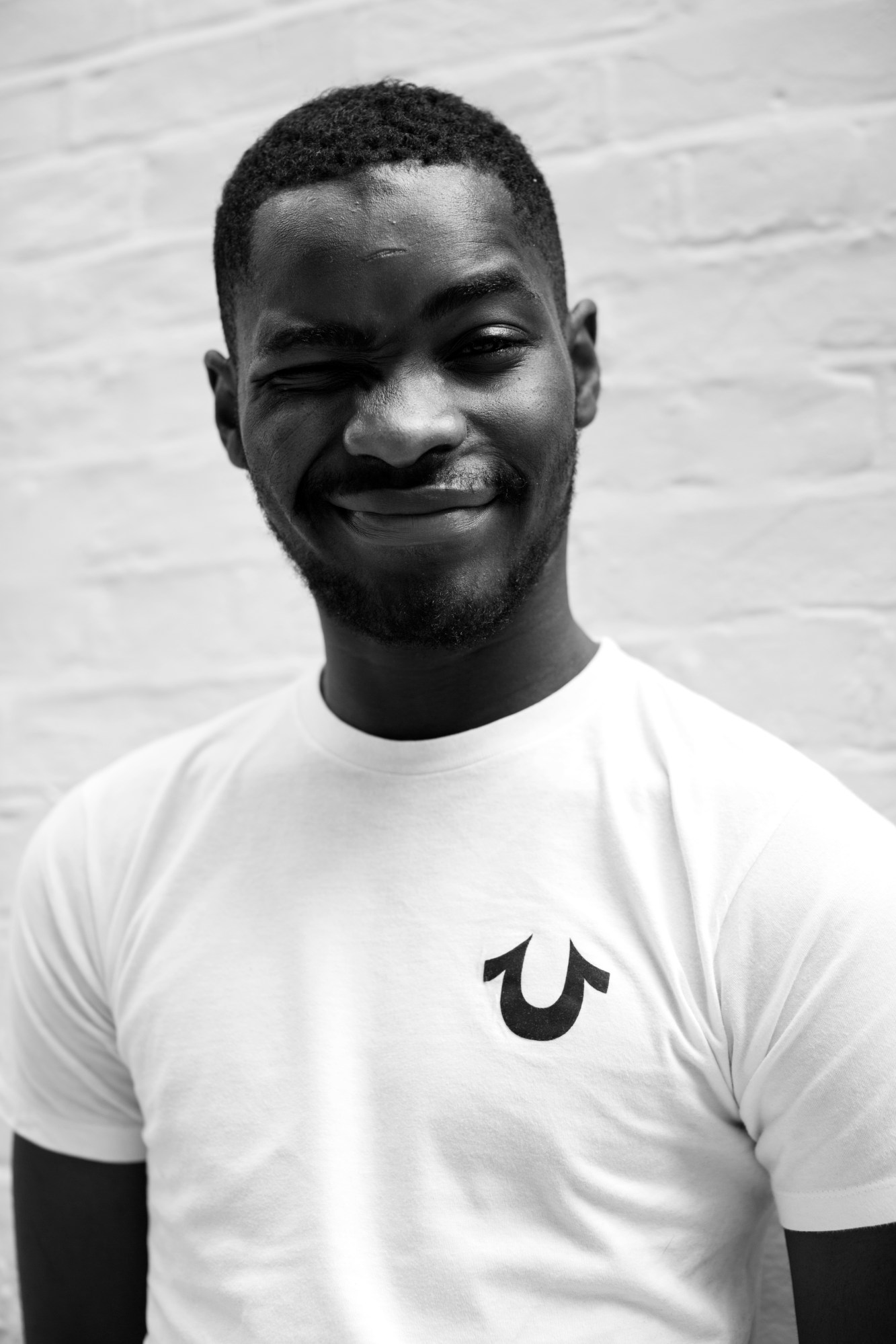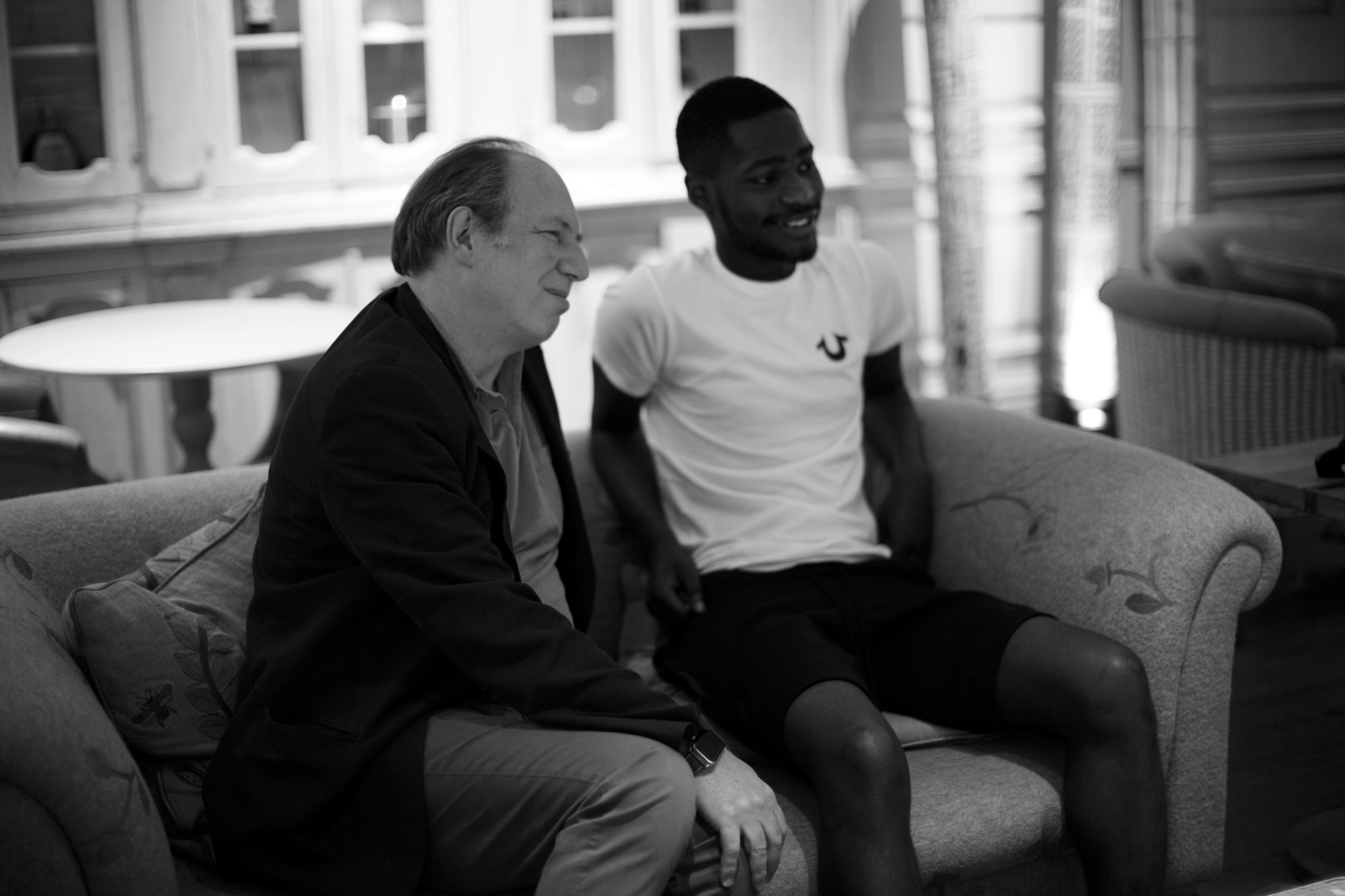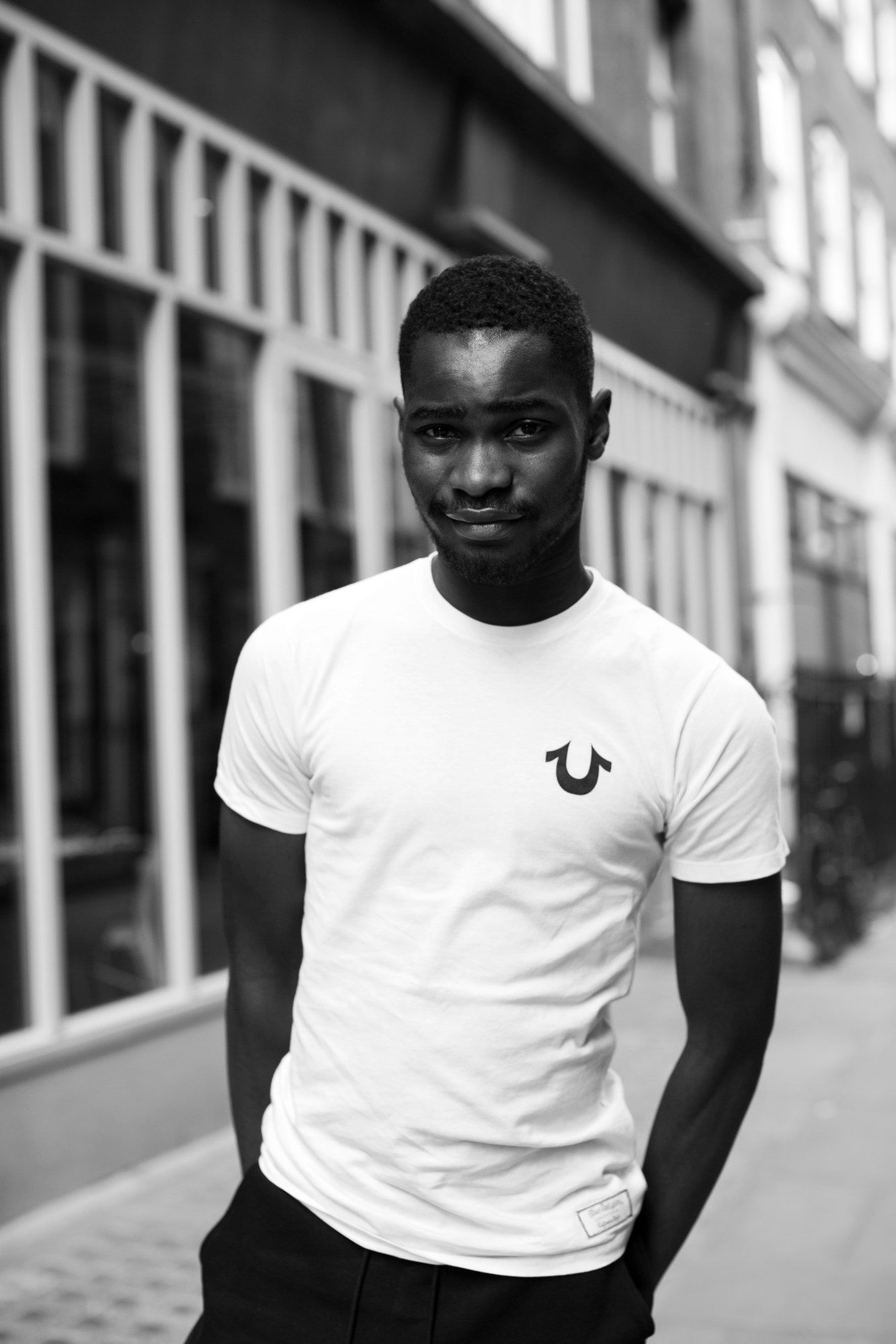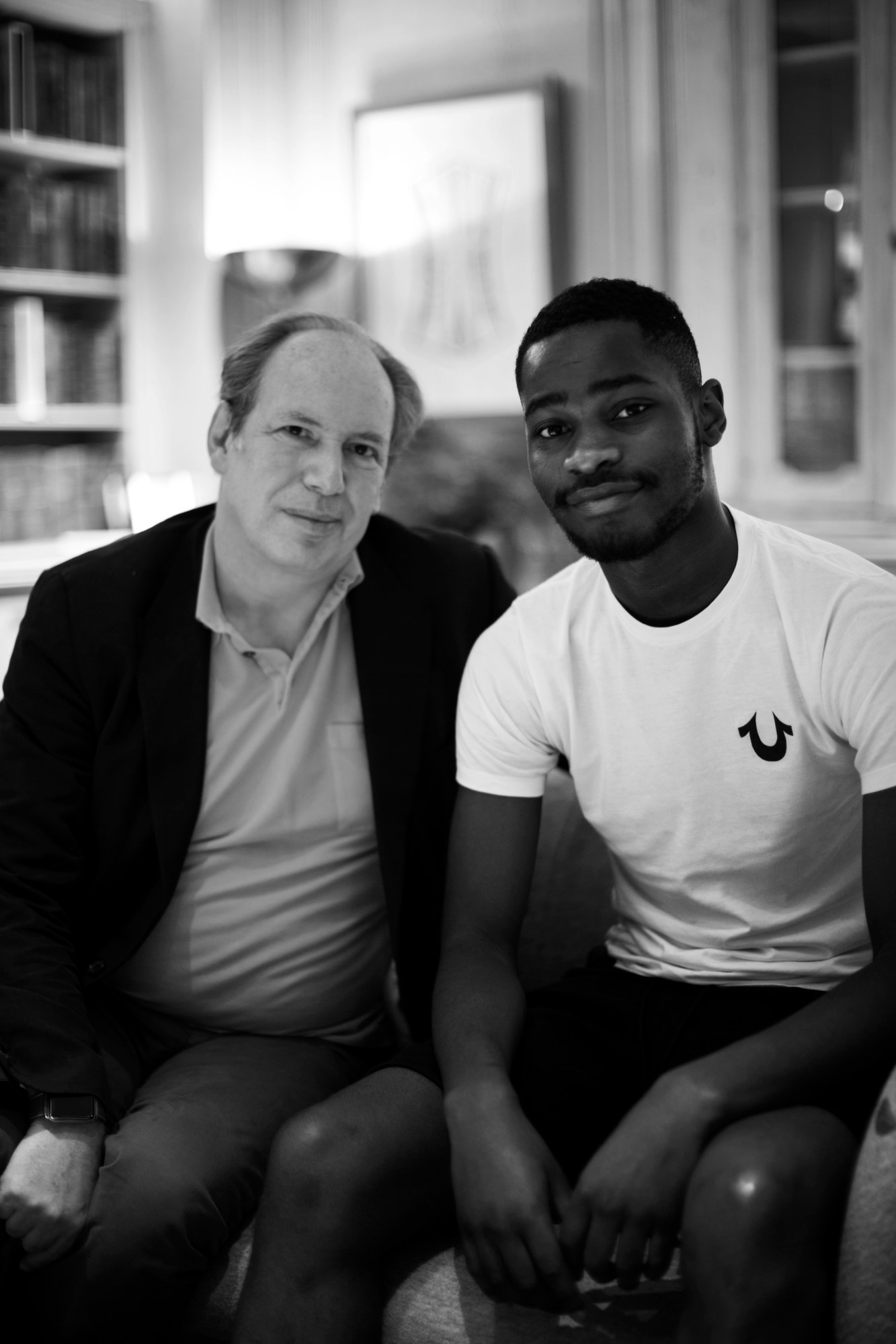“Well, I’m a fan of his because he can do what I can’t do,” says Hans Zimmer, sat on a plush sofa in an even plusher Soho hotel. “He can use his voice.” The legendary composer behind scores for movies such as True Romance, Gladiator, and numerous collaborations with filmmaker Christopher Nolan (see his latest anxiety-inducing masterpiece for Dunkirk), is speaking about south London rapper and i-D favourite, Dave — and it seems the feeling’s mutual. The 19-year old, classically-trained pianist’s music is piled high with the same kind of moody atmospherics as The Dark Knight soundtracker. It’s broad, it’s cinematic – little wonder he has more in common with the 59-year old German composer than many of his UK rap contemporaries. With Hans in London as part of his Hans Zimmer Live on Tour show a few weeks back, we arranged for the pair to sit down to discuss writing, performing and the transformative power of music. “Became friends with one of my heroes yesterday, one of the greatest musicians ever,” posted Dave the following day, sharing a backstage selfie from the show. “That’s right,” Hans is reported to have said on seeing it. “He is my friend”.
Hans: I was thinking about what you do and I think you’re good at what I’m good at – the moody chords. Just the simple fact that we play moody chords, and they seem to get under people’s skin… How did you get into music?
Dave: I started playing when I was maybe 12 or 13 and I think a lot of how you learn and how you come into music can really shape you as a musician. I was looking at a pianist called Kyle Landry who would do covers in this weird way where his left hand would do all the work and he would incorporate a lot of arpeggios and improvisation. After seeing him play a lot of your pieces, I started to do more and more research and then, by playing those songs, I sort of built up a chord bank that I would go to. It ended up being that I would use darker chords because at the time I just had darker content. Lyrically I can only draw from what I’ve given myself. I’ve got a piano so, if there’s no emotion in the music, I can’t put emotion into the words, you know what I mean?
Hans: I do. I nearly got fired off this movie once — My music editor told me that the director said, ‘God, Zimmer, he’s really pissing me off, I’d love to fire him, except when he sits down and plays those moody chords’. And I realised — I’m not a virtuoso. I just know how to play moody chords. Going out on the road has been interesting, you know? We’ve played all these different countries, and I’ve tried, in Poland, to say, ‘Good evening, Ladies and Gentlemen’ in Polish or whatever. That’s all I can say. But when I start playing music, I don’t need words anymore. I really think music can sort of transcend all that stuff we can’t really put into words. And I know you work your ass off, and try and find the words to say things with. You really have something to talk about. This was an experiment, but I don’t show a single image from the movies while we’re playing. I thought, I just wanna give people the freedom, in a way, to make their own movies in their heads, or just whatever memory they have left of it.
Dave: When you’re free of it, it’s not really imposing on anyone, you’re just letting people do their thing.

Hans: I don’t ever want to be the guy who tells you what to feel. But I do want to open the door just a little bit, and say, ‘Okay, here I’m giving you the possibility, just for a moment in time, as opposed to being on your fucking phone or your iPad or whatever, just for a moment, to feel something. You get an experience, and it’s your experience, and you can do with it what you want with it, but just for a moment, things are going to be different’. That’s the power of what we do. The operative word in music is ‘play’. We play music. There’s a bit of something that the audience should take home which is, ‘be a bit more playful in your life’. You know, life’s hard. Life’s grim for most people. It’s trying to make ends meet, it’s getting your kids up in the morning, getting them off to school. But, you know, learn a little bit from us. Because we’re figuring something out. Figuring out that it can be playful.
Dave: Definitely. A lot of the time me and Fraser [T Smith – producer], just try and freestyle the words. I think, if it’s fun for us, it should be fun for everyone else, you know? You can motivate people, you can make people forget, you can make people unhappy, you can make them remember, but you can make them feel something. And that’s a rare thing to be able to do.
Hans: The most we get to feel these days is rage. Rage against the system, rage against anything. But there are other feelings to be had, you know? And, you know how it is, when suddenly the band’s playing, everything is working, the audience is with you, and there’s that really rare feeling where everybody’s emotion is directed in the same direction.
Dave: It’s weird being young and telling people, ‘Oh, I’m a rapper’. It’s like, young, 19, black kid, gold teeth, rapper. You tell people this is what you do for a living when you have conversations in a cab or something, and they just instantly cast their minds in an instant. But musicians, actors, sports people, stuff like that, it’s an extraordinary sort of job because at any given moment in your life, anything can change: There’s no stability.
Hans: So what have you got? You’ve got your mates and you’ve got your music. That’s it. I’m three times as old as you, but we can have a chat, we can probably get up on stage and without even needing to look at each other, we can probably come up with something that seems to be relevant to both of us. That’s the difference between the sports guys and us. The sports guys run out of steam at a certain point. Their bodies just give up. But I’ve never heard known of a musician that retires because it was never supposed to be a job! It’s just a passion. You just go for it and as long as you have something to say… In your case the world is giving you something new to say everyday… to be turned into poetry, which is what you do, because there’s no other way that anyone can understand it. Everything we get these days, it’s bits of information, but it’s not knowledge, it’s not poetry, it’s not from the soul. So, you know, we always need storytellers to tell us who we are and where we are in the world and that’s what you do.

Dave: It takes a level of mental energy. I feel like every song’s like gold or silver, something rare or precious. I don’t make music often, I can’t, because the way I sort of go about it and the way that I craft the words, it’s sort of… I might need to be in a certain mind state because, on a normal day like this, I physically couldn’t say I’m gonna walk into a studio and make a track.
Hans: Me either. I need to wrestle with it. It beats me up, you know? I need to get it under my fingers. I need to know what I want to say. I need to know how I want to say. I need to throw a lot of stuff away because, at the periphery of your vision, you know what you want to say, you’re just not good enough at that moment.
Dave: When I’m showing people music, what they say means absolutely nothing. It’s their facial expression.
Hans: Exactly! So the first time I play something to a director, for instance, I don’t look at them. I should. But I can’t.
Dave: It must be a different level of pressure.
Hans: I’ll tell you a story. Before we started Interstellar, I ran into Christopher Nolan somewhere. He loves putting out a bit of a challenge to keep me on my toes, so he said to me, ‘What if I were to write one page and not tell you what the movie’s about, and whatever you get from that page you write about it?’. And I said, ‘Yes, sounds like a good experiment’. So this letter arrived and it was typewritten on thick paper. And it was really about a father. The relationship a father has to his kids. So I was thinking about my song and I started writing like I was writing a musical love letter to my kid, and at about 10 o’clock at night I finished and phoned Chris up. I got his wife on the phone and I said, ‘I finished it, do you want me to send it over?’ and she said, ‘Well, actually Chris is curiously anxious, is it okay if he comes over?’. So he came, sat down on my couch and, you know, I didn’t look at him as I was playing it to him. When it finished, I sort of went, ‘What do you think?’ and he goes, ‘Hmm, suppose I better make the movie now’. I’m going, ‘Well, what is the movie?’ and he says, ‘Well, it’s space this and epic that and dadada’. I’m listening to this great story he’s telling me, and finally I said to him, ‘But hang on a second, I’ve just written you this really tiny fragile, personal piece. How does this fit in with all this rockets and spaceflight and time travel and stuff?’. And he says, ‘I now know what the heart of the movie is’. So off he went with that piece of music and carried on writing the script.

Dave: Was that the main theme?
Hans: The main theme.
Dave: It’s beautiful.
Hans: But it’s very simple. I write simple music because that’s what I do. It’s just a few chords and just a simple tune — it took me a long time to get rid of the notes. I bet you you have a lot of words going on. A line that you think is really cool, but that doesn’t lead you anywhere, and you just gotta go and kill it off to move forward.
Dave: You’ve got to kill a lot of lines and you just have to make sure that everything you’re saying has a purpose. Like, what is this line building? What picture does it paint in the overall scene? I haven’t achieved that often. I mean, you’ve done it many times.
Hans: No, I haven’t either. That’s why I keep working, because I have this idea of a piece of music that I just haven’t written, you know? Each piece is just me trying to get better at it, get closer at it. And you know something? It’s gonna be a disaster if I ever write it, because then it’s game over. What am I going to do then? It’s the hunt which is good.
Tequila, the latest single from Dave is out, now. Hans Zimmer Live on Tour continues until October.
